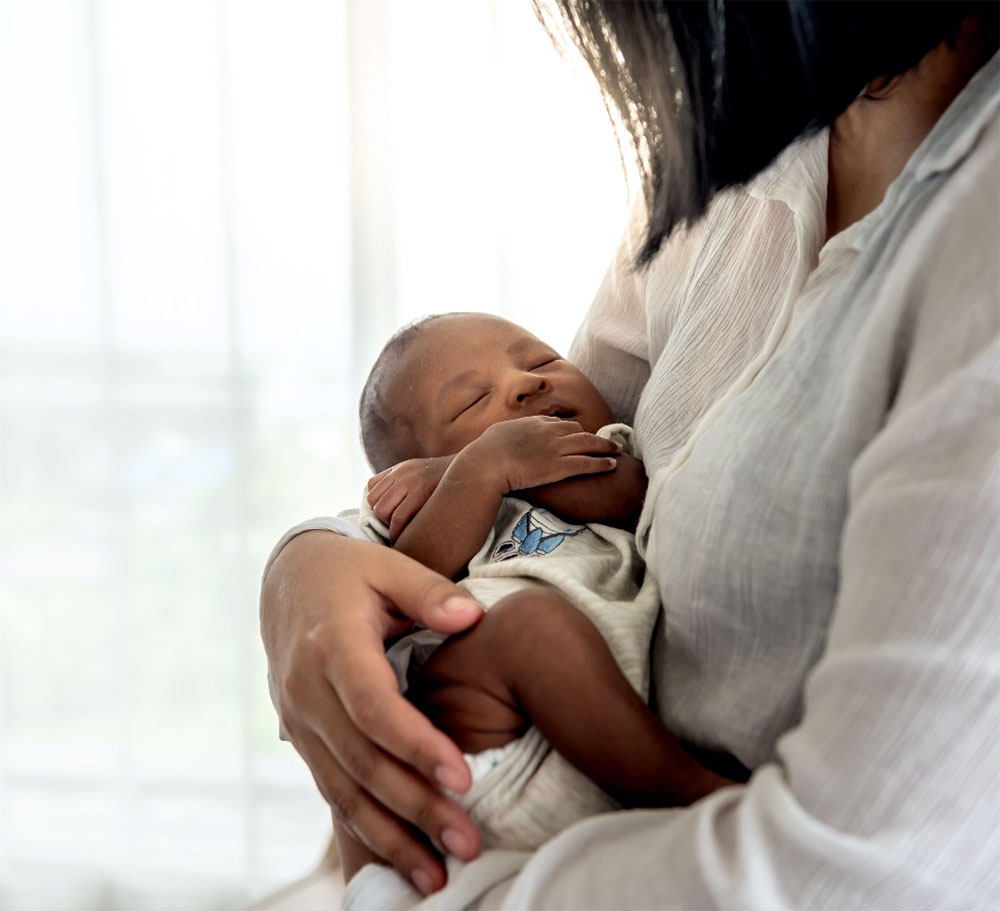Postpartum psychosis (PPP) is rare, and only occurs in 1 or 2 in every 1000 births, or 0.1-0.2%. PPP is always a medical emergency, so if you or someone you are supporting seems to be experiencing PPP, call your health care provider or go to your nearest Emergency Department.
Delusions, hallucinations, hyperactivity, paranoia, decreased need for sleep, rapid mood swings
Note: a person suffering from postpartum psychosis may be unaware their behaviour is abnormal even as they struggle to differentiate between reality and delusion. Upsetting intrusive thoughts (common with PPD and PPA) are not the same as the delusions that accompany PPP. If a person is aware that their thoughts are abnormal and they have no desire to act on them, it is likely not PPP.
Most people experiencing a PMAD do not go on to develop psychosis. Postpartum psychosis is very rare, occurring after only 0.1-0.2% of births. The two biggest risk factors for postpartum psychosis are 1) a personal or family history of bipolar disorder and 2) a previous psychotic episode.
Anyone experiencing symptoms of psychosis or having suicidal thoughts should go to the local hospital emergency immediately. If not, plan to speak with your doctor or get other medical care right away.

Pacific Post Partum Support Society is located on the traditional, ancestral, unceded, and occupied territories of the xʷməθkʷiy̓əm (Musqueam), Sḵwx̱wú7mesh (Squamish), səlilwətaʔɬ (Tsleil-Waututh), and Stó:lō First Nations.